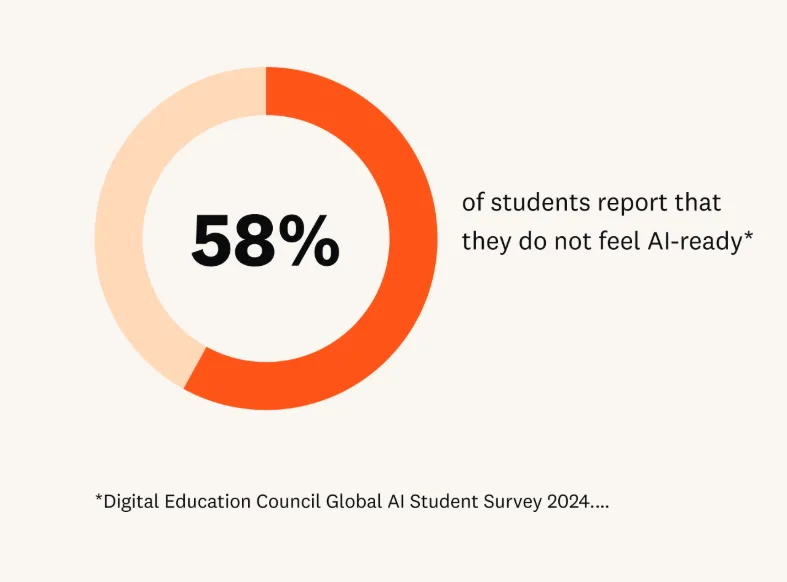The AI literacy gap

Academic institutions face significant challenges in educating students and their research communities in an era of unreliable information. While GenAI tools offer increased speed, personalization, and simplification of complex ideas, students may struggle to understand the data these tools use and assess the trustworthiness of their responses. To thrive in a transformed job market, students must learn how to assess the authority and accuracy of information while developing essential GenAI skills. With 58% of students reporting that they do not feel AI-ready*, highlighting a significant opportunity for institutions to better prepare them for future success.







